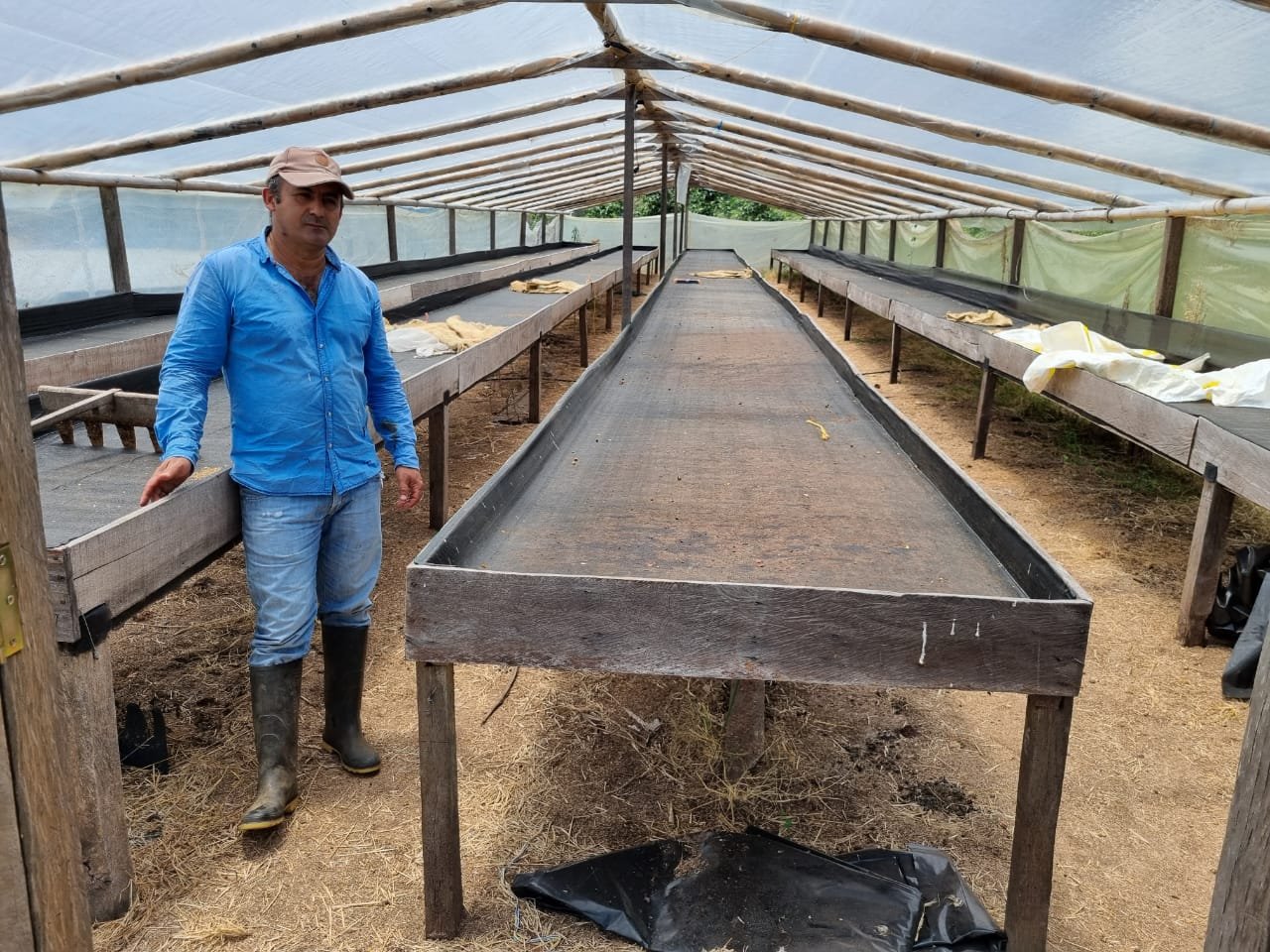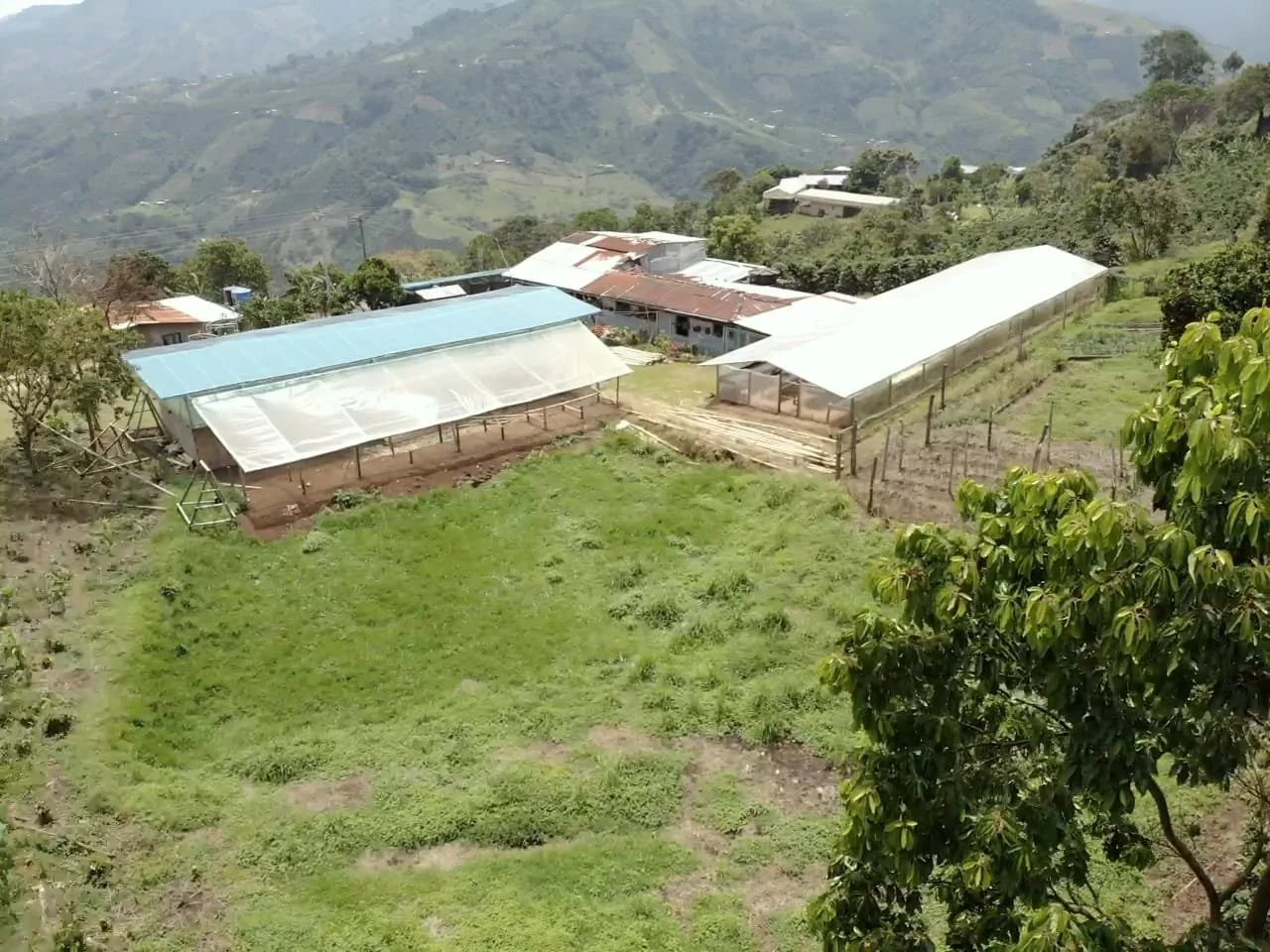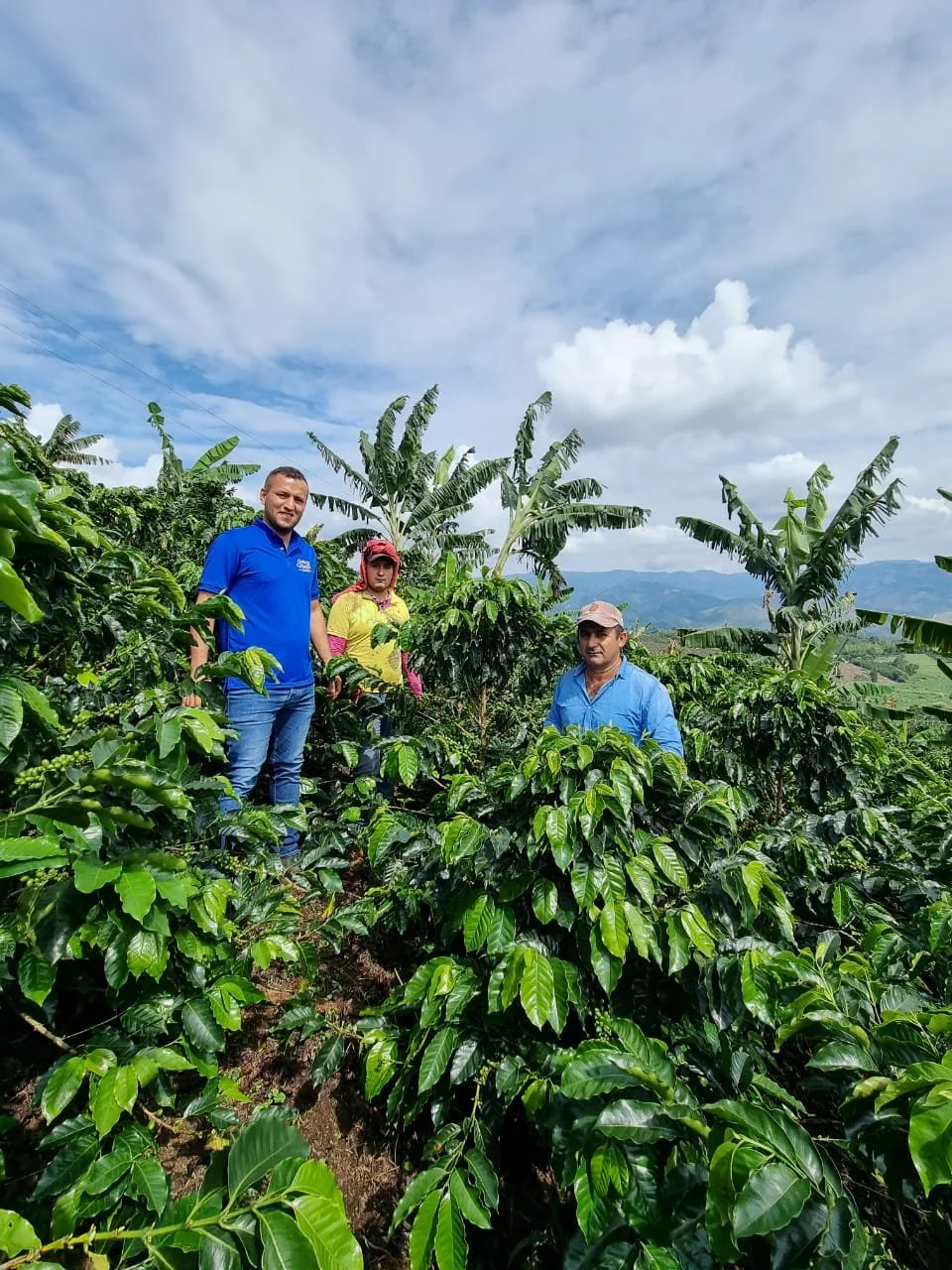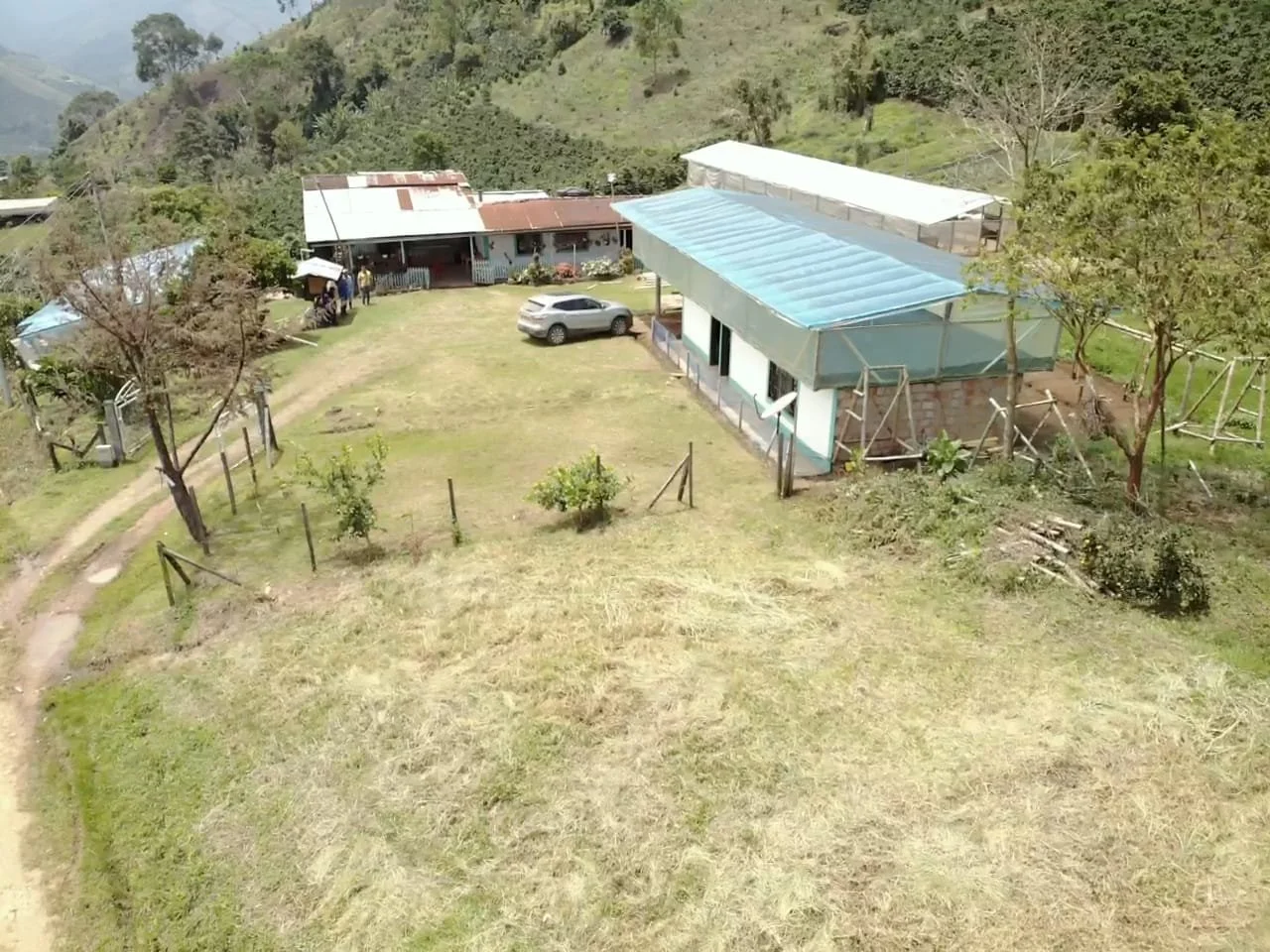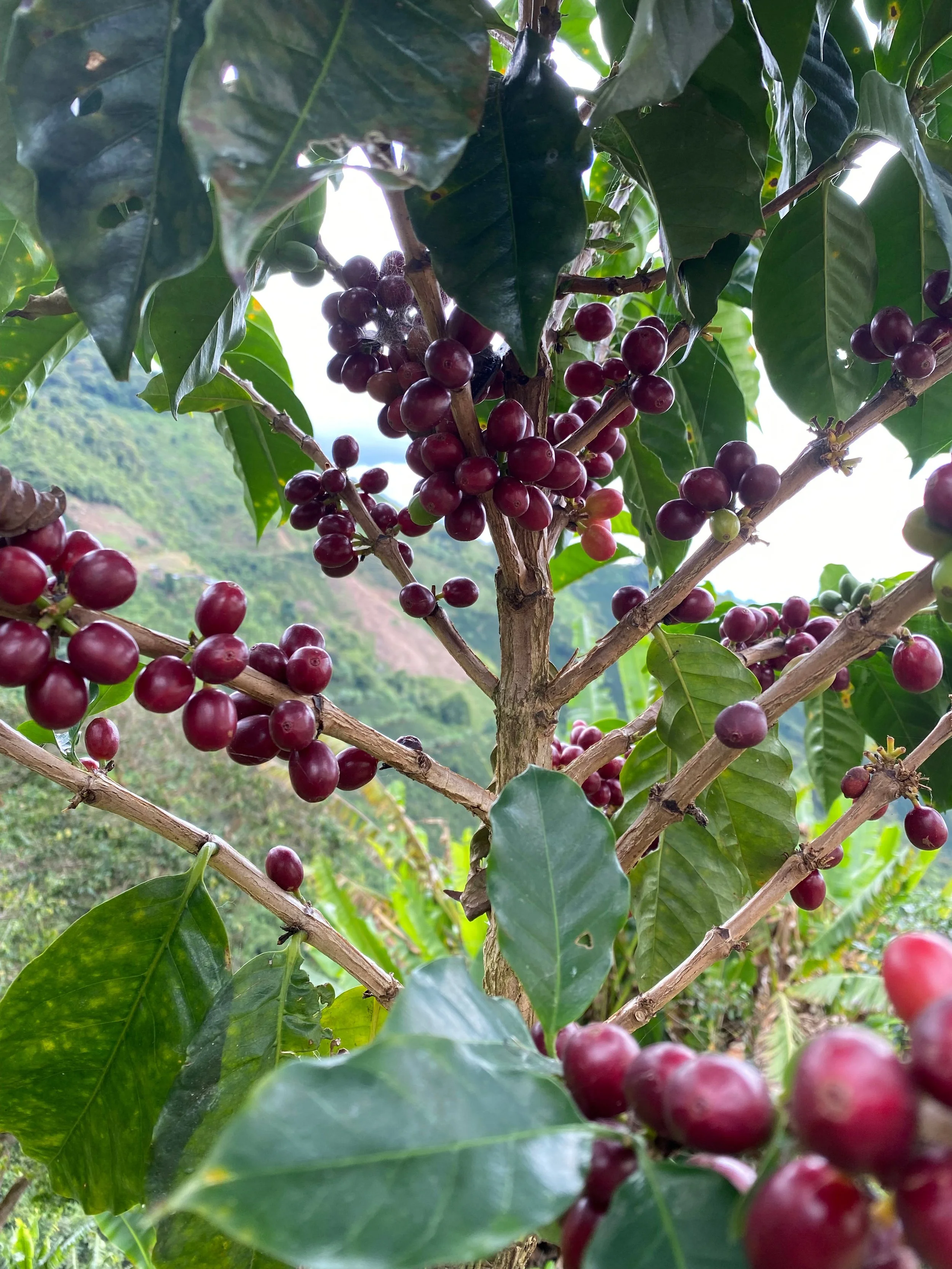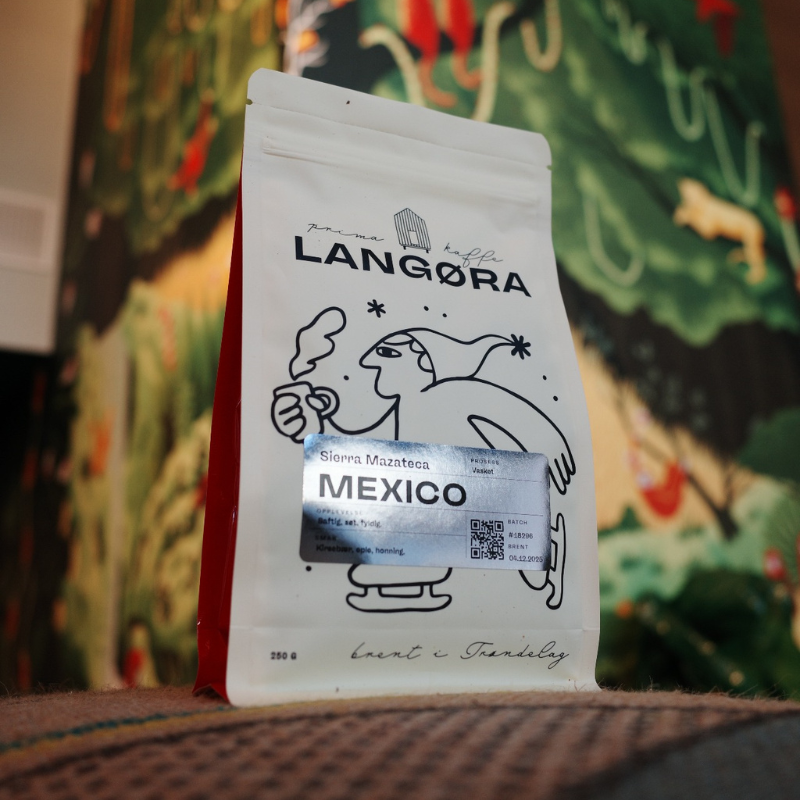Luke 7
Recreo Caturron
COUNTRY: Colombia
FARM/COOP/STATION: Finca El Recreo
VARIETAL: Caturron
PROCESSING: Natural
ALTITUDE: 1,550 meters above sea level
OWNER: Alirio Rodriguez
SUBREGION/TOWN: La Estrella, Acevedo
REGION: Huila
FLAVOUR NOTES: Cherries, mango, caramel
ABOUT THIS COFFEE
Alirio Rodriguez has been producing coffee for more than 30 years. He’s a third-generation coffee producer and, at the age of 15, he bought his farm, Finca El Recreo. Today, he is focused on achieving high coffee quality and sustainable prices. He is joined by two of his adult children who work with him on the farm.
Alirio transitioned to specialty coffee in 2018. He made the switch because of the low prices of commercial coffee and the desire to improve and expand his coffee production.
The Caturron variety is a relatively new variety from Acevedo, Colombia that's virtually unknown outside of that region. Its exact genetic lineage is currently unknown, but the variety is fast becoming recognized for its distinctive flavor and large cherry. Caturron is also resistant to coffee leaf rust and has relatively high yields.
CULTIVATION
One of the biggest challenges Alirio faces is climate change and its effect on flowering and harvest. He’s also struggling with the high costs of inputs. As he strives to improve coffee quality, he’s planning to invest in a large mechanical dryer that would make drying more consistent and controllable.
Once ripe, red cherry is harvested, Alirio lays cherry on raised beds to dry. Cherry is raked frequently to ensure even drying.
CATURRON
Caturron is one among several new varieties in Huila, Colombia. "Rumor has it that there was an experimental research farm near Acevedo, Huila," explains Juan Andres Gutierrez, Specialty Supply Chain Coordinator for Sucafina Colombia. "When the project was abandoned, the plants stayed behind." Now, several new varieties have been selected and spread across Huila that aren't found anywhere else. Caturron, which translates into "big Caturra" is one of these mysterious varieties. It's unclear whether Caturron is genetically distinct from all other known varieties since it hasn't been officially sequenced yet. But to the farmers of Huila, the unique features and flavors of these varieties are worthy of attention and many farmers are propagating these varieties and processing them in distinct lots. We're glad to have such unique and delicious varieties on offer!
ABOUT HUILA
The Huila region is one of the most well-known coffee growing areas of Colombia. The Department of Huila has a population of 1.125 million and is located in the southwest of the country. The capital of the department is Neiva, a city of about 380,000.
Along with Cauca and Nariño, Huila is one the three departments where the Colombian Massif is located. A massif is a group of mountain ranges and the Colombian Massif, which is known locally as Nudo de Almaguer, provides up to 70% of safe drinking and agricultural water for the Colombian population.
The Magdalena River, Colombia’s largest river, runs through the region, providing plenty of water for coffee farming and generating (directly and indirectly) up to 86% of Colombia's GDP. The mountain range also features the fertile volcanic soil so typical to the Andean Mountains.
COFFEE IN COLOMBIA
Colombia has been producing and exporting coffee renowned for their full body, bright acidity and rich aftertaste, since the early 19th century.
Colombia boasts a wide range of climates and geographic conditions that, in turn, produce their own unique flavors in coffee. This also means that harvest times can vary quite a bit. In fact, between all its different regions, Colombia produces fresh crop nearly all year round.
The increasing focus on the specialty industry is changing the way traders and farmers do business. It is becoming more common for farmers to isolate the highest quality beans in their lots to market separately. These higher-quality lots are often sold under specific brands or stories.
Besides its wide variety of cup profiles, Colombia has quickly expanded its certification options over the past 10 years. The most common certifications available are Fairtrade, Rainforest Alliance, UTZ and Organic.


